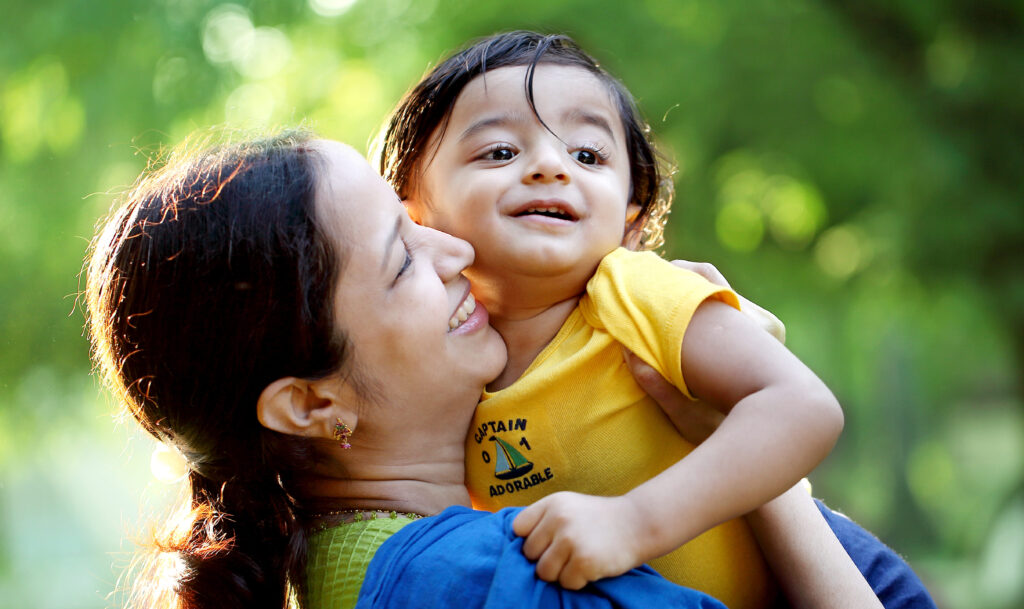By Nikki Shearman, PhD (Reach Out and Read) and Dani Dumitriu, MD, PhD (Columbia University Irving Medical Center)
“It was like a beating heart,” reflected Bryn, a member of a multidisciplinary team that had come together to explore the evaluation of best practices in advancing strong parent-/caregiver-child relationships. Bryn was referring to the wonderful way that the team’s discussion first expanded to capture the diverse ideas and perspectives at the table. It then contracted, like a beating heart, into alignment around a groundbreaking evaluation approach and a research strategy that will identify what works, for whom, under which real-world conditions.
The heartbeat motif also represents our discussion topic of Early Relational Health (ERH) — defined as the positive emotional connection between babies and toddlers and their parents/caregivers when they experience strong, positive, and nurturing relationships with each other. There is compelling evidence for the importance of ERH in a young child’s development and long-term health and well-being. Yet the field of implementation (“real-world”) research into best practices for the promotion of ERH is not well developed. A recent meta-analysis of 93 studies examining the effectiveness of early parent-/caregiver-infant interventions revealed mostly low to moderate effects on ERH that were time limited and did not extend to other child and parent/caregiver outcomes.
Prompted by this critical need and opportunity for an evidence base that will drive both policy and practice, our diverse team, the ERH Learning Community, was convened to support the work of Nurture Connection in building a movement to advance ERH. In December 2022, parent leaders, pediatric care clinicians, researchers, and early childhood development experts joined together to codesign a research agenda and approach that will advance our understanding of best practices in the promotion of ERH. This meeting was convened with funding from Overdeck Family Foundation and with gratitude to the American Academy of Pediatrics for the use of its national headquarters. Defining our scope, we agreed that our initial agenda would be restricted to the promotion of ERH through pediatric primary care with extension to other sectors over time. We recognize that successful promotion of ERH will require a multilayered and connected approach through healthcare systems, early care and educational systems, and local communities.
We enthusiastically determined to adopt a novel iterative evaluation approach that combines data-driven and practice-informed research methodologies, codesigned with parents/caregivers and practitioners. We will collaborate with the extensive Reach Out and Read network of clinics and clinicians as a platform for field research and connect this to the large-scale, longitudinal data capture of child and parent/caregiver relational health and outcomes of COMBO, established at the Columbia University Irving Medical Center. There was firm agreement that success of our venture is dependent on partnership with both parents/caregivers and practitioners at all stages of the evaluation process!
Finally, we addressed our thoughts on vision, core principles, and research questions. There was remarkable alignment in the group with the theme of connections and relationships remaining central to our dialogue — in their importance for the health and well-being of parents/caregivers and young children and for effective partnerships between clinicians and families during well-child care. This will be a theme as we continue to build out the research strategy. The ERH Learning Community is also committed to a core focus on connections and relationships defining how we move forward to iteratively evaluate and refine practices that can be adopted by pediatric primary care clinicians to advance ERH and to establish an evidence base to drive policy and practice change.
This blog is authored by ERH Learning Community co-chairs Nikki Shearman, PhD (Reach Out and Read) and Dani Dumitriu, MD, PhD (Columbia University Irving Medical Center)
